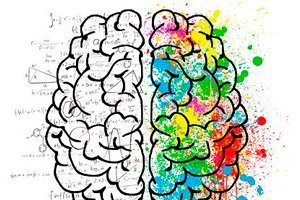
All iLive content is medically reviewed or fact checked to ensure as much factual accuracy as possible.
We have strict sourcing guidelines and only link to reputable media sites, academic research institutions and, whenever possible, medically peer reviewed studies. Note that the numbers in parentheses ([1], [2], etc.) are clickable links to these studies.
If you feel that any of our content is inaccurate, out-of-date, or otherwise questionable, please select it and press Ctrl + Enter.
How does pregnancy change a woman's brain?
Medical expert of the article
Last reviewed: 01.07.2025
 ">
">We know a lot about the links between a pregnant mother's health and her baby's behavior, mood, cognitive and psychological development after birth.
But how does pregnancy change a mother's brain?
"Pregnancy is a critical period for the health of the mother's central nervous system," says psychologist Laura M. Glynn of Chapman University. "Yet we know virtually nothing about it."
Glynn and her colleague Kurt A. Sandman of the University of California, Irvine, conducted a detailed study of the brains of pregnant women.
During pregnancy, a woman experiences massive hormonal fluctuations unlike any other time in her life. Research shows that reproductive hormones prepare a woman's brain for motherhood - helping her become more resilient to stress and attuned to her baby's needs. This explains why mothers often wake up when their baby starts moving, while they sleep soundly even when their partner snores loudly.
The study also clarifies the mechanisms by which the prenatal environment affects the child. For example, the effect of maternal malnutrition or depression on the child's health. The relationship between living conditions in the womb and life in the external environment is of great importance for the child. A fetus whose mother is malnourished adapts to the deficit and copes with the lack of food in the womb, but after birth it can become obese, even with normal nutrition. Stress and anxiety of the mother in early and late pregnancy can also affect the cognitive development of the child in the future.
Just as the mother constantly influences the fetus, the fetus does the same for its mother. Fetal movements, even when the mother is unaware, raise the heart rate and skin sensitivity. Fetal cells pass through the placenta into the mother's bloodstream. "What's interesting is that these cells are attracted to certain parts of the mother's brain," which alters maternal behavior, Glynn says.
Glynn concludes by warning that most of the research on the maternal brain has been done in rodents, whose pregnancies are very different from those of women, so more research is needed in humans.


 [
[